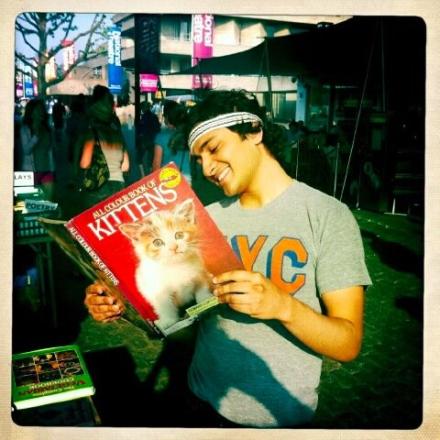
This is an edited version of an excellent piece by BBC producer/writer/actor Arnab Chanda. If you like it read the full article here.
Throughout my life, even though we’ve never met, Aziz Ansari has consistently beaten me to the punch. It’s becoming a theme. A sometimes very annoying theme. Although, for various reasons I’ll discuss below, I do believe he has been the most important Indian Comedy Actor in the past 10 years.
In his new series on Netflix, Master of None, Aziz Ansari says “There can only be two,” referring to the idea that there can only ever be 2 Indians in one show at any point, max. Studio Executives and Networks are afraid to put any more than that, and they’re afraid most of the time, to even put one on.
I remember when I started doing stand-up in New York City in 2003, and after watching me, a fellow comic asked me “Oh, do you know Aziz Ansari? He’s an young Indian stand up as well.” Aziz was another comedian starting out in NYC at the same time as me. But even then, in 2003… in one of the biggest cities in the world, I got the feeling, “Wow, it’s like there’s only two of us.”
As an Indian guy with a British passport and an American accent, it’s been somewhat of an impossible dream living here in London. Not just because of my lack of talent with accents, but with the inherent racism that seems to quietly exist within the entertainment industry here.
Stand-up is a meritocracy. If you work your ass off, the best comics will, for the most part, rise. You can command audiences to come see you. And these audiences will pay regardless of your race or gender or ethnicity. They just want funny.
The same is not true in TV or Film. Stand-up was always a means to an end for me. The problem, I discovered, is that the “end”, does not exist. Of the roles on my acting showreel about 85% of them have come from friends and performers essentially writing parts for me: Dan Clark, Julia Davis, Noel Fielding, etc., all wrote parts specifically with me in mind. Only two roles I’ve ever gotten in 11 years have come from auditioning. One was an ITV2 show called Trinity, in which I played a University student, and the other was a BBC3 pilot called UP!, in which I played, yes, a University student.
As Aziz states in his brilliant article, what we see on TV isn’t representative of the diversity we see in life. We don’t live in a closed world anymore. People move around. People have weird accents. People have weird names and looks. And here’s the thing: it’s not that important. In fact, it’s the least interesting thing about that person.
Kal Penn (from Harold and Kumar fame) has talked extensively about how he had to change and aglicize his name because he wasn’t getting any auditions with his real name, Kalpen Suresh Modi. After he changed it, his job offers escalated by 50% because Casting Directors couldn’t tell he was Indian from his name anymore. Arj Barker, another one of my favourite comedians of all time, also changed his name, from Arjun Singh.
It is why I admire Aziz Ansari so much. In 2003, in New York City, you did not want a name like “Aziz Ansari.” It was still post 9/11, and the comedy climate was not good. People were still on edge, and walking on stage with a name like Aziz could not have been easy. I know that walking on stage with a name like Arnab wasn’t easy. People judged. Quick.
But he never changed his name, and he hustled. He started doing his own shows at UCB, made one of the best sketch shows I’ve ever seen in my life for MTV (Human Giant), and played Tom Haverford in Parks and Recreation. Tom Haverford. He beat a whole bunch of white dudes to land that role. He’s the man.
There’s a problem with the industry, and it has to change. It starts with Commissioners, and it works it’s way down to Producers and Directors and Writers. It’s a group effort, but when you see shows like Master of None or Romesh Ranganathan in Asian Provocateur, you genuinely realise we’re neglecting a lot of interesting voices out there.
I recently wrote a comedy pilot called “International Boy” which was exactly about all the above themes that I’ve had to deal with in my life. It was a personal script about how one can’t seem to be accepted because they’re just too many things. Aziz Ansari might have beaten me to the punch again about this, but that’s ok. Someone needs to get the message out there that things need to change, and he has the smarts to do it.



